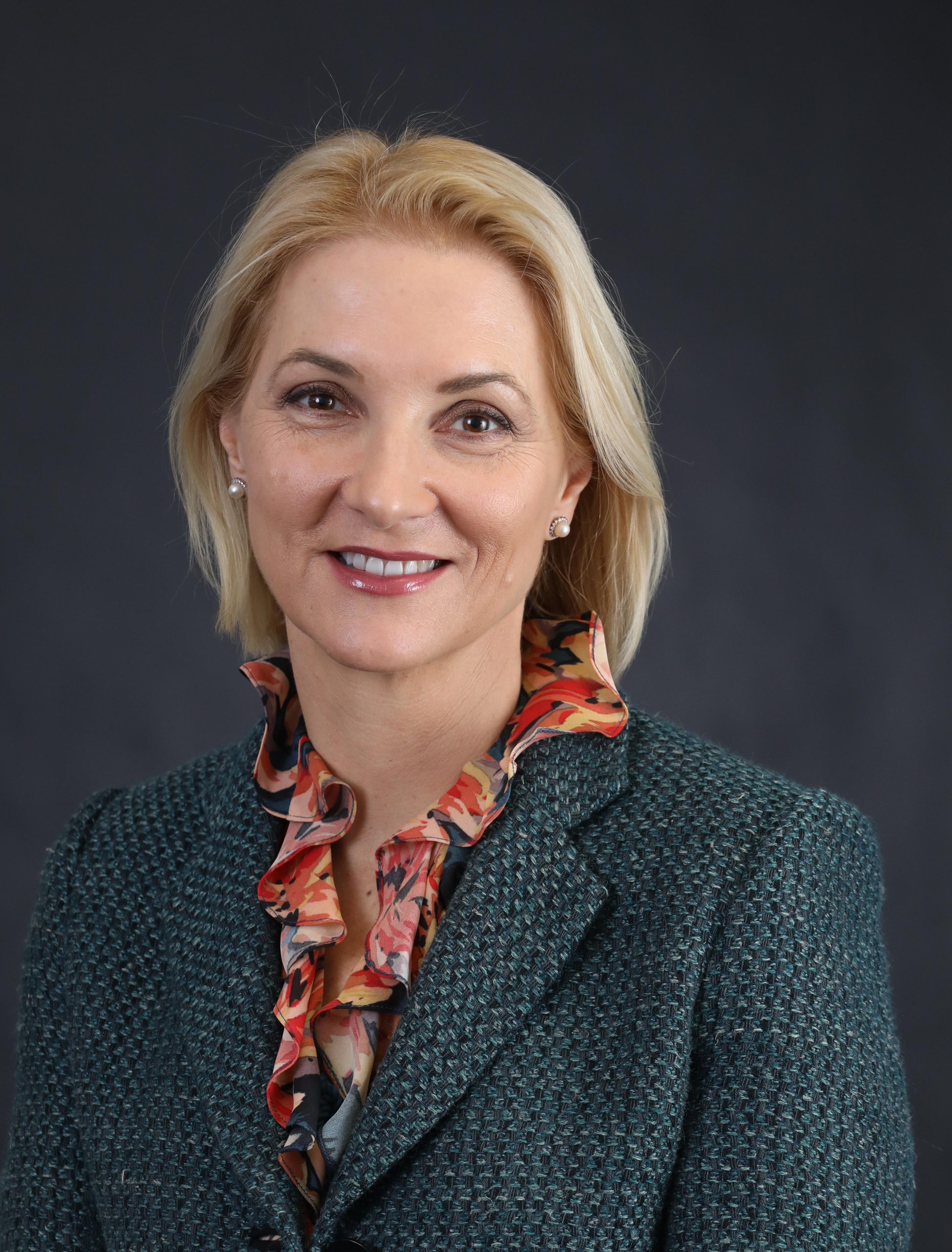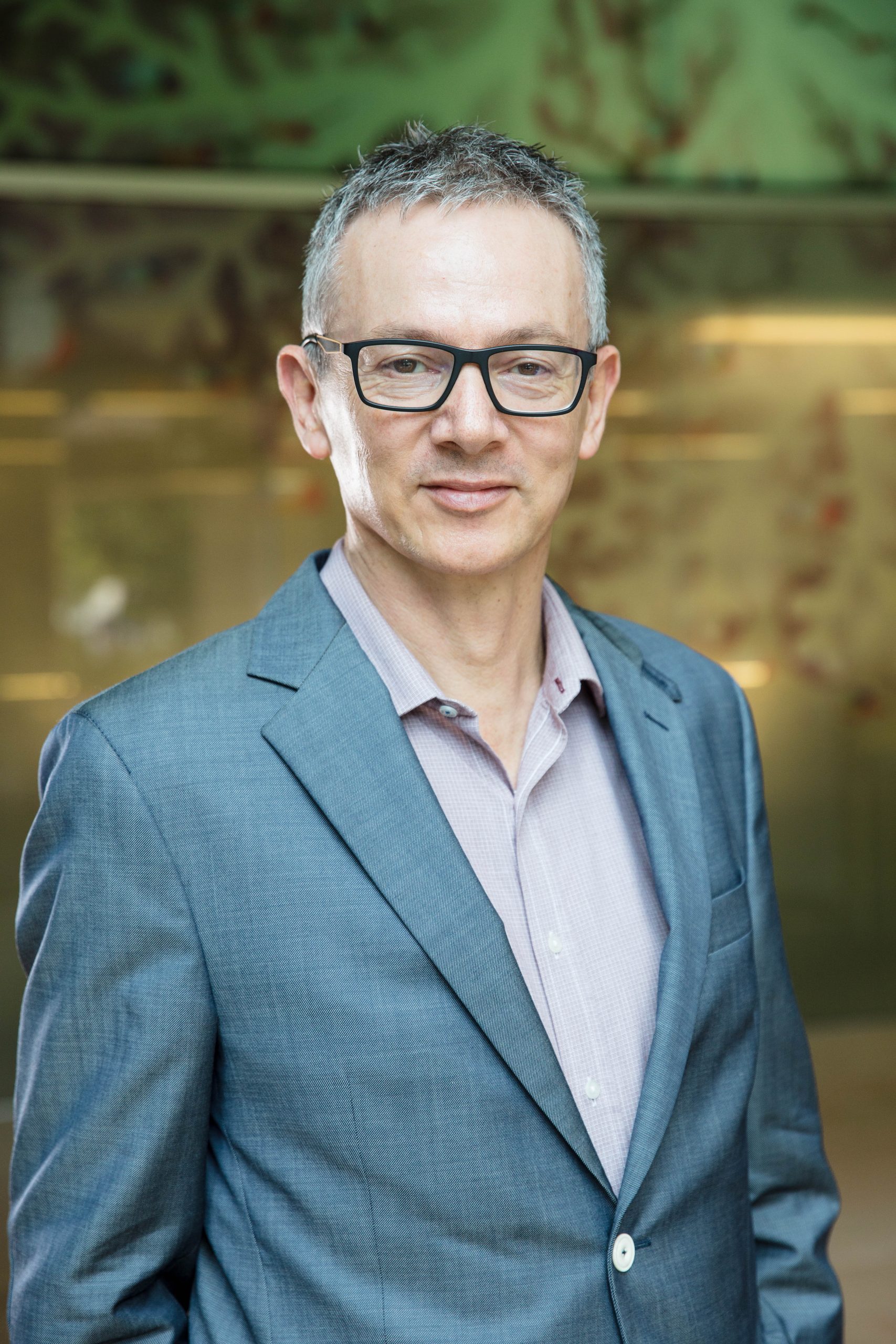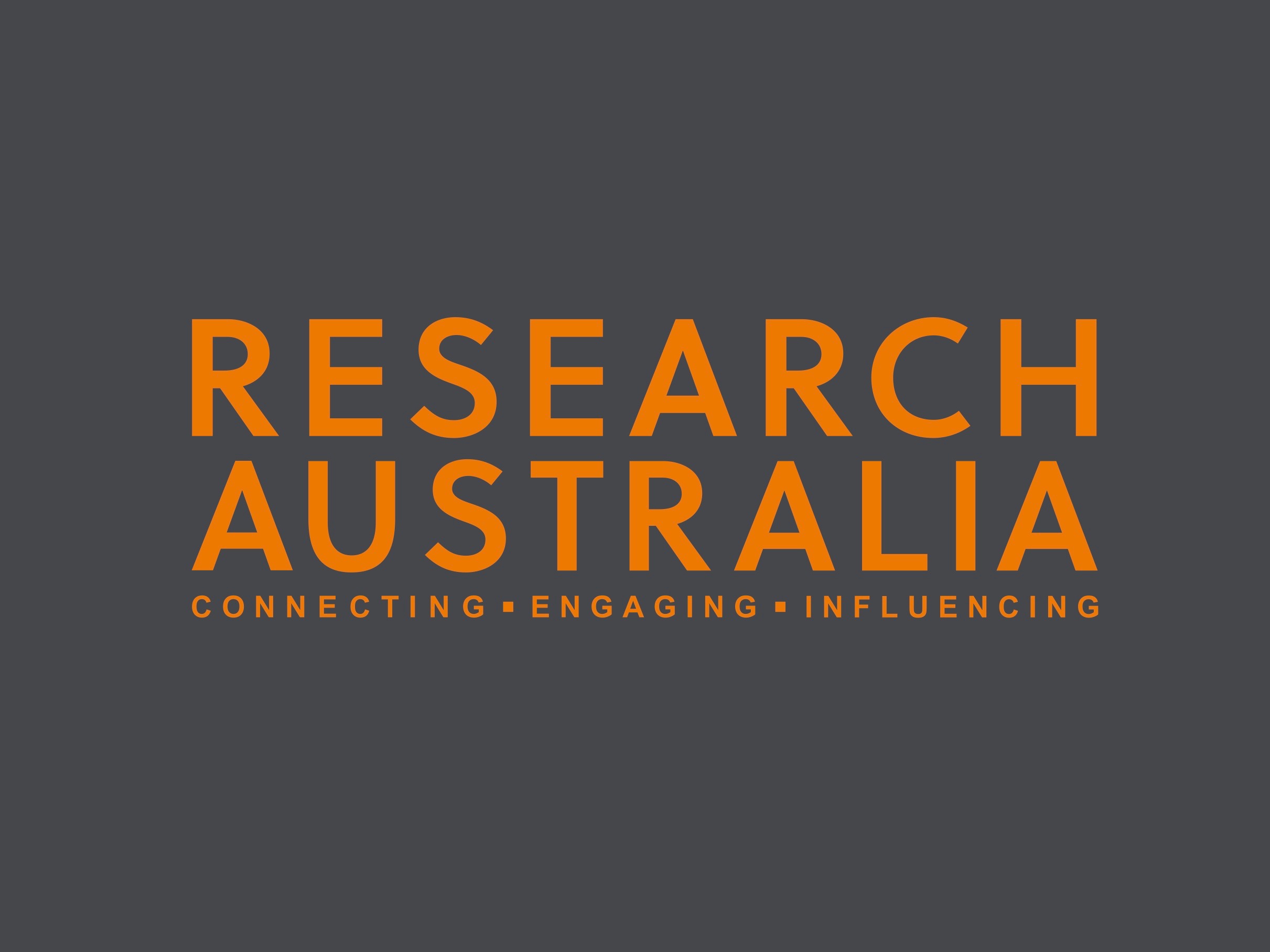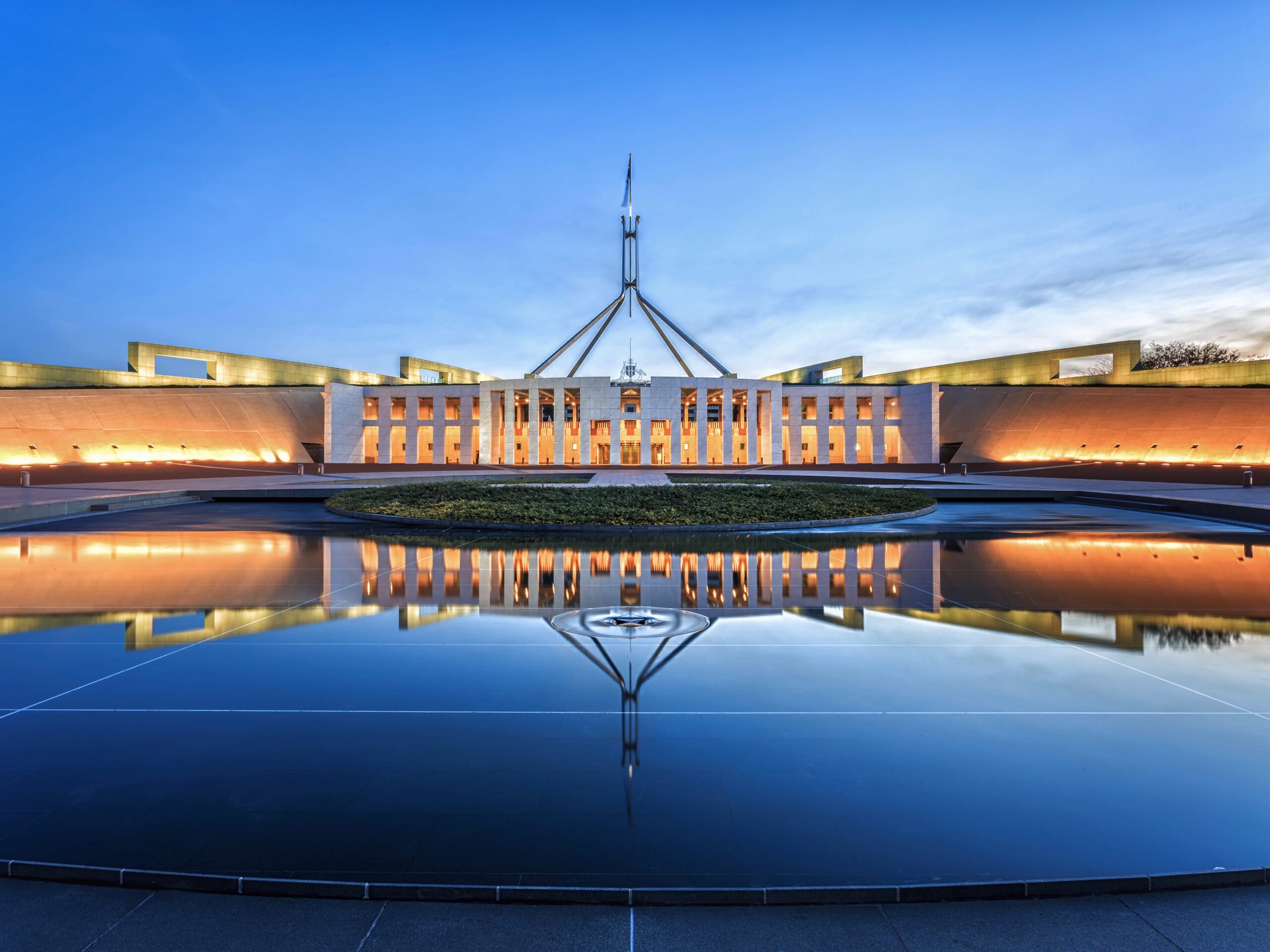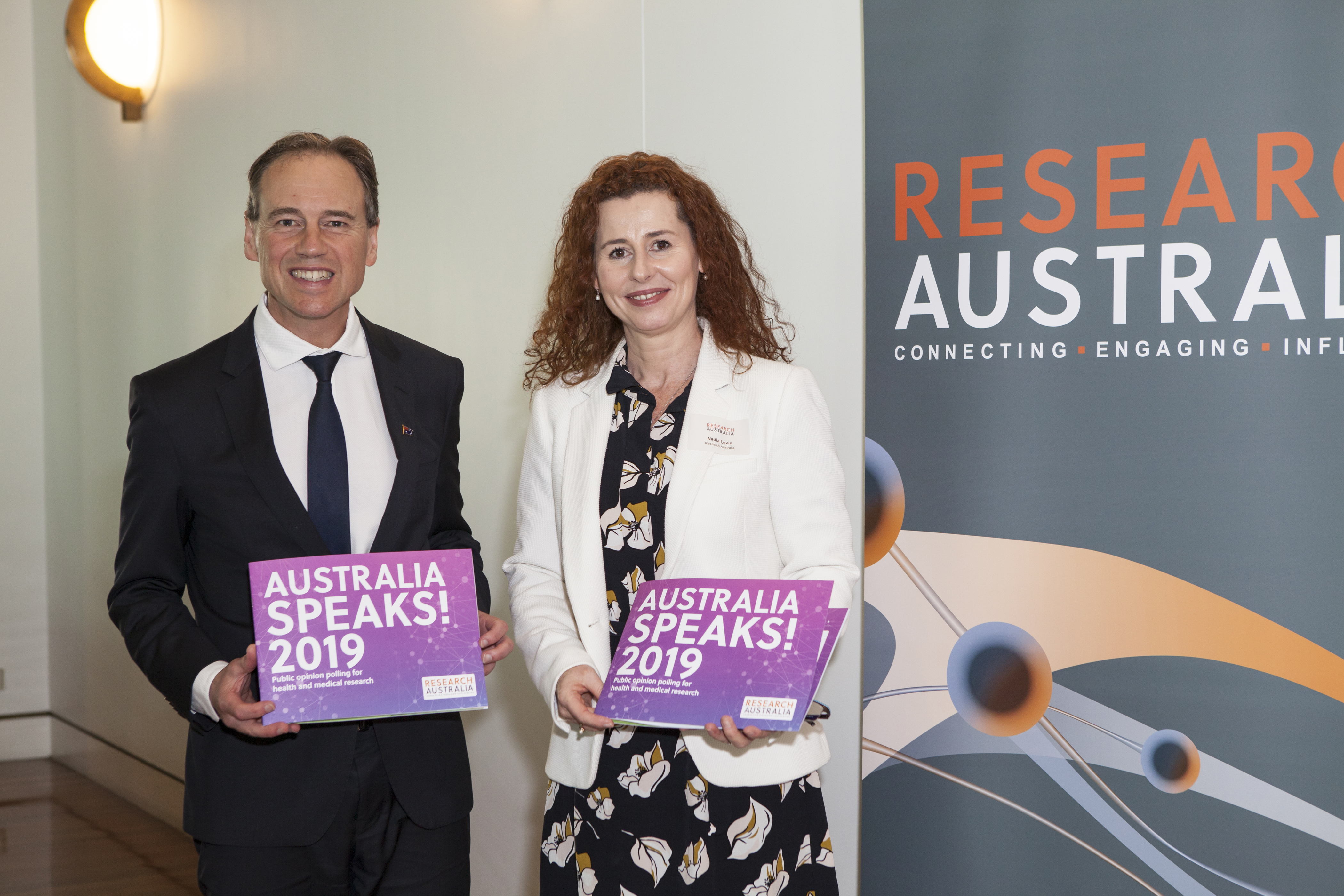Data Innovation Finalist – Professor Georgina Chambers and the National Perinatal Epidemiology and Statistics Unit, UNSW
Introducing our 2023 finalists: Professor Georgina Chambers and the National Perinatal Epidemiology and Statistics Unit, UNSW
Research Australia is proud to recognise all of the outstanding finalists in this year’s Health and Medical Research Awards, and we look forward to celebrating their work at the Award gala on November 2.
This year, we’re sharing a few of their fantastic stories as an insight into some of the exciting research happening now in Australia. Keep an eye on our social media channels for more about this year’s finalists.
Research Australia is a passionate advocate for the importance of data in advancing Australia’s health sector. Through the Data Innovation category in the Health and Medical Research Awards, we celebrate an individual or team whose work could revolutionise the use of data in the medical research field.
This year, our finalists include the National Perinatal Epidemiology and Statistics Unit (NPESU) at UNSW, who are pioneers of data innovation in the Australian IVF sector.
SHAPING THE FUTURE OF FERTILITY
Infertility is a growing public health challenge, making IVF an important focus area for health researchers. Infertility affects 1 in 6 couples[1] and is amplified by the continuing societal trend towards later childbearing. As a result, more people are having children using Assisted Reproductive Technology (ART) with 1 in 18 children born using ART in Australia[2].
Embarking on IVF treatment is a major life decision that can have profound effects on a person’s physical and mental wellbeing. Patient decision aids such as online calculators for success or risk have been shown to help patients feel more comfortable during the decision-making process. However, up until recently, there has been no way for patients to independently compare IVF clinics across Australia, or to gain an unbiased estimate of their own chances of IVF success.
INNOVATING DATA FOR DECISION-MAKING
Supported by a MRFF Emerging Priorities and Consumer Driven Research
Grant, the NPESU developed and launched the YourIVFSuccess website – the first Australian website to help consumers make informed decisions about IVF treatment. The website includes two consumer tools that were co-designed with end-users and demonstrate best practice in co-production, AI modelling, and interactive website design.
The website allows consumers to compare IVF clinics across Australia and utilises machine learning to provide those contemplating IVF with highly personalised predictions of their chances of success.
Since its launch in 2021, YourIVFSuccess has made a significant impact, with more than 110,000 visitors and 158,000 sessions, and monthly site visits continuing to increase.
“Our recent evaluation showed that the YourIVFSuccess Estimator has greatly helped those contemplating or going through IVF to realign their expectations of treatment success and to feel clearer in their decision-making,” says NPESU Director Professor Georgina Chambers.
“We are also updating the Estimator to include IVF success rates for same-sex couples, single females, and those contemplating using donor eggs or donor sperm. This will make YourIVFSuccess Estimator the only one in the world to cater for these patients, which is an important step for providing more inclusive IVF treatments.”
We look forward to celebrating the finalists and announcing the winners of the National Health and Medical Research Awards at a gala ceremony in Sydney on November 2. A small number of tickets remain: purchase here.
[1] IVF Australia. (n.d.). What is infertility? IVF Australia.
[2] Chambers GM, Newman JE and Paul RC. (2023). Assisted reproductive technology in Australia and New Zealand 2021. (2023). UNSW Sydney.
Frontiers Award Finalist – Professor Jürgen Götz
Introducing our 2023 finalists: Professor Jürgen Götz
Research Australia is proud to recognise all of the outstanding finalists in this year’s Health and Medical Research Awards, and we look forward to celebrating their work at the Award gala on November 2.
This year, we’re sharing a few of their fantastic stories as an insight into some of the exciting research happening now in Australia. Keep an eye on our social media channels for more about this year’s finalists.
The Frontiers Award acknowledges research by an individual or group that transforms medical knowledge into practical solutions, with the promise of improving health outcomes within Australia and potentially abroad. The Frontiers Award is generously sponsored by the Australian National University.
Among this year’s outstanding finalists in this exciting category is Professor Jürgen Götz, Director of the Clem Jones Centre for Ageing Dementia Research at the University of Queensland, who has helped develop a portable ultrasound scanning device with a range of applications in dementia treatments.
DEMENTIA: A COMPLEX AND COSTLY CHALLENGE
Dementia involves the loss of memory and cognitive abilities and is a serious health challenge both in Australia and globally. Every three seconds, someone in the world develops dementia and almost half a million Australians live with it[1]. Without a medical breakthrough, the number of people living with dementia is expected to increase to more than 800,000 by 2058[2].
So far, research efforts have focused on drug treatments, but with limited success. To date, more than 200 therapeutic drug candidates have failed, and despite decades of ongoing research there is still no cure for dementia.
A PORTABLE TREATMENT WITH GLOBAL POTENTIAL
Professor Götz and his team have created a non-invasive ultrasound device that can be used to directly treat dementia diseases such as Alzheimer’s as well as to enhance the effectiveness of current drug treatments.
Professor Götz has a long track record of showing how the peptide amyloid-β and the protein Tau lead to dementia. Through his studies, Professor Götz has further successfully demonstrated how various therapeutic ultrasound techniques can be used to clear these pathologies. In animal studies, Professor Götz and his team have also shown how ultrasound techniques can safely open the blood-brain barrier and help deliver drugs directly to target brain areas. Finally, they have built an investigational medical device that is currently being trialled in people with Alzheimer’s disease.
By 2036, the total cost of dementia is predicted to increase by 81 per cent to $25.8 billion[3].
The portable technology developed by Professor Götz and his team has the potential to be a low-cost, non-invasive treatment that can massively reduce healthcare costs and improve patient outcomes worldwide.
“The choice between ultrasound or drug treatment doesn’t have to be binary. Ultrasound therapy can go hand-in-hand with emergent drug treatments,” said Professor Götz.
“Given that 98 per cent of drugs developed for brain diseases do not enter the brain, the therapeutic potential of our strategy extends beyond Alzheimer’s and could go a long way in improving treatments for many other diseases of the brain.”
The winners of Research Australia’s Health and Medical Research Awards will be announced at a gala award ceremony in Sydney on November 2. A small number of tickets remain: purchase here.
[1] Australian Institute of Health and Welfare. (2022). Dementia in Australia. AIHW, Australian Government.
[2] Ibid.
[3] Alzheimer’s Australia. (2017). Economic cost of dementia in Australia: 2016-2056. NATSEM, University of Canberra.
Research Australia Welcomes Establishment of National Women’s Health Advisory Council and Appointment of CEO as a Special Advisor
January 2023
Research Australia Welcomes Establishment of National Women’s Health Advisory Council and Appointment of CEO as a Special Advisor
Research Australia has welcomed today’s announcement by the Assistant Minister for Health and Aged Care, Ged Kearney, of a range of eminent Australian experts in women’s health.
The Council was announced by Minister Kearney at Research Australia’s national Health and Medical Research Awards and CEO of Research Australia, Nadia Levin, has congratulated all fellow appointees to the new National Women’s Health Advisory Council.
“I am honoured by this appointment as a Special Adviser to the Council and would like to thank the Minister for establishing the Advisory Council. I see this appointment as acknowledging the whole pipeline of great health and medical researchers that Research Australia represents,” Nadia Levin said.
“This Women’s Health Advisory Council fills an important gap. Despite the great strides we have made, there are still lingering issues around women’s participation in research trials. Women are still being ignored in medical trials and reports.
“Quite often clinical trials do not report specific results for males and females. There is a failure to account for the different effects a drug may have on men and women, and this undoubtedly compromises quality of care for women.
“I look forward to working with all the highly qualified and committed members of this Council to advise the Australian Government on all issues affecting women and their access to fair and equitable treatment by the Australian Health system, particularly in research.”
ENDS
Research Australia is the national peak body for health and medical research, representing
the entire health and medical research pipeline.
Accolades for Australia’s health and medical research stars
November 2022
Accolades for Australia’s health and medical research stars
Australia’s leading health and medical researchers, and those supporting their ground-breaking work, have been recognised as finalists in Research Australia’s prestigious national Health and Medical Research Awards.
Representing a range of specialist fields, including immunology, public health, space biology and bioinformatics, these finalists are at the forefront of health and medical research with their work driving significant impact for patients and clinicians alike. Inspiring philanthropists and advocates for research have also been recognised.
Research Australia CEO Nadia Levin said the Awards, now in their 19th year, celebrate Australian health and medical researchers whose achievements are driving innovation and transforming health on a national and global scale.
“The pandemic has shown how important comprehensive health and medical research is for our communities and our health systems,” she said.
“The critical skills of this sector cannot be developed overnight – nurturing and investing in early and mid-career researchers is essential, as well as supporting our more established world-leading researchers.
“Increasingly, health and medical researchers must work across disciplines to produce complex solutions to today’s most pressing health issues. As technology advances, researchers must also remain at the forefront, pioneering innovations for long-term health challenges.”
“COVID-19 has made Australians acutely aware of the impact health and medical research can have on their daily lives. It’s crucial that we continue to support and advance Australian health and medical research, so we can remain global leaders in the field, delivering life-changing breakthroughs and improvements.”
There are eight award categories in total, with finalists from six announced today. They are:
- The Frontiers Award, sponsored by Australian National University
- The Advocacy Award, sponsored by AbbVie
- The Griffith University Discovery Award
- The Health Services Research Award, sponsored by the Victorian Government (DJPR)
- The Data Innovation Award
- The Great Australian Philanthropy Award
In addition to the winners of the above categories, the winner of the Peter Wills Award will be announced at the on the night, as will the winner of the 2022 GSK Award for Research Excellence.
Find out who the finalists are here:
“As the only peak body for the entire health and medical research pipeline, Research Australia is proud to recognise these researchers who are leading the charge to improve health outcomes in Australia and across the world,” Ms Levin said. “We look forward to celebrate the finalists’ dedication, leadership and success at the Awards Gala next month.”
Winners will be announced at the 19th Health and Medical Research Awards in Melbourne on December 8. These Awards recognise and showcase the best research minds and research implementors along with those amazing individuals who support and promote Australia’s incredible health and medical research.
For the past 22 years, Research Australia, the national peak body for Australian health and medical research, has advocated for a sustainable research and innovation eco-system.
ENDS
Research Australia is the national peak body for health and medical research, representing the entire health and medical research pipeline.
Frontiers Award Nominee Professor Maher Gandhi featured in The Australian
New hope in fight with fatal blood cancer
The Australian
Mackenzie Scott, Tuesday 23 March 2021
A cancer breakthrough developed in Brisbane is expected to give new hope to patients suffering a rare and deadly form of blood cancer that affects the brain and nervous system.
The dual precision treatment designed at Brisbane’s Mater Hospital by haematologist Maher Gandhi is expected to revolutionise the care given to those diagnosed with a non-Hodgkin‘s lymphoma called Primary Central Nervous System Lymphoma.
Professor Gandhi has spent the past five years researching the disease, which affects between 10 and 20 Australians a year. It is the first large-scale study into PCNSL conducted worldwide as part of an Australian-led international consortium, which found that the genomic make-up of the lymphoma was fundamentally different from any of the 60 other types.
“I remember when I was a trainee doctor, seeing patients like this, there was always a lot of excitement because the disease is quite rare. It was alongside a lot of disappointment, too, because it was so hard to treat,” Professor Gandhi said.
“Some of the rare cancers get very neglected. It just made me very passionate to try to extend the advances we’ve had in other forms of non-Hodgkin’s lymphoma to these ones.”
PCNSL, which is confined to the brain, eyes and cerebrospinal fluid,mostly affects people in their 50s and 60s who are immuno-compromised.
Chemotherapy and radiation are largely ineffective.
Brisbane grandfather Scott Griffiths, 46, was diagnosed with the disease in 2018 after a bout of glandular fever.
While the virus wouldn’t normally increase the risk of developing the cancer, a kidney and pancreas transplant in 2010 had left him susceptible.
Professor Gandhi prescribed a dual treatment that included a daily dose of small molecule chemotherapy drug Ibrutinib for 10 weeks alongside a vaccine of cells from a healthy person who had previously had the virus.
The goal was to try to kill the cancer slowly and re-educate the immune system how to function.
“I was really depressed when I was diagnosed,” Mr Griffiths said. “I thought I was going to die.”
“I may not be here for a long time, the tumour could come back but hopefully I can get back to work and do something for myself.”
The treatment is in its third year of clinical trials and the research is about to be published in the American Society of Haematology’s journal Blood.
Professor Gandhi is also in the running for Research Australia’s prestigious National Health and Medical Research Awards.
The full article can be viewed here.
Notice of Research Australia AGM 2020
|
Giving the IMPACT of COVID-19 Government visibility
Invitation to participate in our survey – The IMPACT of COVID-19 on research
Research Australia is working with its members across the pipeline to compile a comprehensive report for Australian governments to fully understand:
1) the contribution the health and medical research innovation sector is making to the response to COVID-19 and
2) the impact COVID-19 is having on the sector
We continue to collect examples of COVID-19 related research for the first and we thank you for the ongoing contributions you are forwarding.
We now ask for your input to the second focus area. We have designed a brief survey to gain insight into the impact of the pandemic from the viewpoint of researchers and innovators across the whole sector. Please complete the survey and forwarding it to others in your networks ASAP – it will only take 10 to 15 minutes.
We believe it is vital governments fully understand the different effects COVID-19 is having right across our sector and this is your opportunity to contribute. We need them to know about the impact COVID-19 is having on you, your research, and your teams.
At the moment this impact has no visibility – you can help fix this.
The survey is available here.
About the survey
The survey questions have been developed by Research Australia in partnership with Deakin University. Non-identifiable data will be transferred to Deakin University for analyses, report writing and publication of findings as aggregated data in peer-review publications. Submission of the survey implies consent.
If you have any complaints about any aspect of the project, the way it is being conducted or any questions about your rights as a research participant, then you may contact The Human Research Ethics Office, Deakin University, Telephone: 9251 7129, research-ethics@deakin.edu.au Please quote project number [HEAG-H 71_2020].
For further information on this study please see the Plain Language Statement.
Congratulations to the 2019 Health & Medical Research Award winners
MEDIA RELEASE 20 November 2019
Top accolades, top minds at Research Australia’s Health and Medical Awards
Australia’s biggest hearts and brightest scientific minds have been recognized in Research Australia’s 17th Health and Medical Research Awards, with honours for scientists, doctors and extraordinary Australians who are working to bring life-changing breakthroughs to patients.
Researchers working to dramatically improve the lives of patients with cancer or HIV and make childbirth safer for mothers and babies were among those honoured, as well as the community champions and philanthropists who help bring their work to life.
Research Australia CEO Nadia Levin said the calibre of the finalists demonstrated the strength of Australia’s research sector, with remarkable work emerging from new areas of health and medical study.
“Almost every day, Australian researchers uncover new insights that can change the way we treat or prevent disease,” she said. “Through incredible dedication and skill, these amazing scientists are making an indelible mark on the journey of human progress, with tangible results for the health and wellbeing of us all.
“Australia has a vibrant and innovative health and medical research sector, well represented at last night’s Awards ceremony in Melbourne. We’re honoured to present this year’s winners as an inspiring mix of researchers, advocates and philanthropists who are making a global impact on healthcare and changing lives in the process.”
Federal Health Minister Greg Hunt delivered the keynote speech at the Awards, with an address also given by Research Australia patron Sir Gustav Nossal AC CBE. Federal Opposition health spokesman Chris Bowen and Victorian parliamentary secretary for medical research Frank McGuire were among the VIPs presenting the Awards.
Professor Kathryn North AC was announced as winner of Research Australia’s flagship award, the prestigious Peter Wills Medal, recognising her outstanding leadership in genomic medicine which has helped drive Australia’s international reputation in this field.
Professor North – who is Director of the Murdoch Children’s Research Institute – is playing a key role in integrating genetic testing and diagnosis into standard healthcare, with the aim to shorten diagnosis times, enable early intervention, and provide access to treatment for people with genetic disorders. Through her own research, she has worked to identify new disease genes and improve diagnosis, setting the benchmark for ongoing research efforts.
Associate Professor Jeremy Micah Crook and team (University of Wollongong) were awarded the inaugural Frontiers Research Award for their work using electrical stimulation to produce advanced living human neural tissue, with potentially beneficial applications for patients with neurological disorders such as epilepsy, schizophrenia and Parkinson’s disease.
Dr Christine Keenan (Walter and Eliza Hall Institute) won the Griffith University Discovery Award for her epigenetics work which suggests an existing anti-cancer drug can ‘switch off’ and reverse the inflammation that causes asthma, potentially paving the way for the first targeted treatment addressing asthma’s root cause that would be easy for patients to take.
Pamela Galli graciously accepted the Great Australian Philanthropy Award, recognising the extraordinary generosity she has shown through The Lorenzo and Pamela Galli Medical Research Trust by supporting advances particularly in cancer and child health, helping generations of researchers and patients as a testament to her late husband Lorenzo.
Professor Gordon Lynch (University of Melbourne) won the Advocacy Award for his 18-year commitment to the ABC’s Overnights program, where he translates the latest scientific and medical research into clear messages that can transform people’s health, inspiring millions of Australians to engage with research and recognise the importance of lifestyle factors in better long-term health.
Professor John Lynch (University of Adelaide) won the Data Innovation Award – sponsored by Bupa Health Foundation – for developing the South Australian Early Childhood Data Project which has provided invaluable insight for policy makers and agencies seeking to give children the best start in life.
Professor Libby Roughead (University of South Australia) received the Health Services Research Award – sponsored by the Victorian Government – for her leadership in improving medicine use within our national health services to reduce the risk of patients suffering or potentially dying as a result of problems with their medicines.
The GSK Award for Research Excellence was presented to Professor Brendan Crabb AC (Burnet Institute) for his research into infectious diseases.
Ms Levin said the competition in each category had been fierce, with all nominees displaying tremendous talent in their respective fields.
“On behalf of Research Australia, I would like to thank all our nominees, nominators and members for helping make this night a celebration of the remarkable ability and innovative spirit within this sector,” she said.
“I would also like to thank the organisations who have supported the awards, including University of NSW Sydney, Bupa Health Foundation, Griffith University, GSK, Monash University and the Ingham Institute.”
Research Australia CEO Nadia Levin is available for interviews.
Media contact: Pia Akerman, 0412 346 746. A full list of winners follows.
2019 Research Australia Award Winners
Peter Wills Medal: Named in honour of Research Australia’s Deputy Chairman, Peter Wills AC, a great leader whose work led to the inception of Research Australia. The Peter Wills Medal is the flagship award and recognises someone who has made an outstanding, long-term contribution to building Australia’s international reputation in areas of health and medical research and fostering collaboration for better health.
Winner – Professor Katherine North AC (Murdoch Children’s Research Institute)
Great Australian Philanthropy Award: This Award profiles personal philanthropy that is outstanding in its generosity, effectiveness, vision, high impact and transformative quality. The Award recognises and encourages personal philanthropic donations over a period of time by an individual(s) or family to Australian health and medical research.
Winner – Mrs Pamela Galli (the Lorenzo and Pamela Galli Charitable Trust)
Health Services Research Award: This Award is for an individual or team who has provided leadership and made an outstanding contribution to health services research; driven research that has led to a significant improvement in healthcare; and/or has championed the development of the health services research field. Sponsored by the Victorian Government.
Winner – Professor Libby Roughead (University of South Australia)
Data Innovation Award: This Award recognises an individual or team whose innovation is considered to represent one of the most impactful new data innovations in the HMR sector within the past five years. Sponsored by Bupa Health Foundation.
Winner – Professor John Lynch (University of Adelaide)
Griffith University Discovery Award: This Award recognises an early career researcher (anytime from qualification but no more than 5 years past PhD whose paper/patent/discovery has already demonstrated its importance or impact.
Winner – Dr Christine Keenan (Walter and Eliza Hall Institute)
Advocacy Award: This Award recognises and congratulates exceptional contributions made by research champions who help raise community awareness and understanding about the importance of health and medical research.
Winner – Professor Gordon Lynch (University of Melbourne)
Frontiers Research Award: This Award recognises the success of innovative health and medical research that extends existing knowledge, boundaries and/or understandings within health and medical research.
Winner – Associate Professor Jeremy Micah Crook and team (University of Wollongong)
GSK Award for Research Excellence: One of the most prestigious awards available to Australian researchers, this prize has been awarded since 1980 to recognise outstanding achievements in medical research with potential importance to human health. This year’s Award is accompanied by a grant of $80,000 to further the winner’s research.
Winner – Professor Brendan Crabb AC (Burnet Institute)
2019 Australia Speaks! Opinion Poll Media Release
Australians say health and medical research matters!
Australians’ opinions matter when it comes to our healthcare system and the research that underpins it.
The national peak body, Research Australia, has asked Australians for their opinions on health for the past 17 years and consistently they consistently tell us that research is crucial to better health and living our best lives.
The Minister for Health, the Hon. Greg Hunt launched the 2019 consumer poll Australia Speaks! at Parliament House yesterday to an audience of Research Australia’s Members along with government representatives, sector leaders and other health organisations.
The Minister said, ‘What is clear from this poll is that Australians value their own and government investments in health and medical research for delivering good health outcomes. Health and medical research is a key priority of the Government, that’s why we are investing $20 billion in the Medical Research Future Fund.’
“Health and medical research is about people so each year, with the generous help of Roy Morgan, we ask consumers for their opinions to enable us to reflect their values, and those of our Members, to ensure policy supports our health system.” says Nadia Levin, CEO of Research Australia.
“It is clear Australians see improving hospitals and healthcare as the number one spending priority for the Australian Government, even ahead of infrastructure, education standards and employment opportunities.
“Three quarters of Australians say they are interested in health and medical research. However, while confident in their ability to contribute to decision making about the future direction of the sector, most Australians don’t know how, and many don’t believe they’d be heard. Our governments and research organisations clearly have more work to do to meaningfully engage with the broader community.”
The results also confirmed that Australians are willing to embrace technology that can help them better manage their own health. They trust healthcare professionals to assist them with choosing those technologies and directing them to other credible online information sources. Professor Mary Foley, Managing Director Telstra Health and Research Australia Director shared her views around the impact of data in supporting improved health and what the future holds with the ongoing advances in technology.
The subject of ‘The empowered patient and consumer – managing our own health’ was discussed in a panel made up of sector leaders including the CEO of the Foundation for Alcohol Research & Education Michael Thorn, the CEO of Diabetes Australia, Greg Johnson and Jeppe Theisen, Vice President and General Manager Oceania, Novo Nordisk. Each discussed the importance of preventative medicine and what they are doing in this space to support Australians.
The poll also covered donations and government funding, and once again support for health and medical research is widespread. And at a time when we see the government partnering with the not for profit sector to support health and medical research, people indicated they would be more likely to donate a higher amount if the government would match their donation – a sentiment also reflected in previous polls.
Australians’ opinions continue to shape Research Australia’s strategies and priorities and observations of the changing trends and current attitudes will be shared widely to help shape policy and change to enable a healthier Australia.
Research Australia and Roy Morgan research are proud to release the results of the 2019 poll and further information is available by clicking here.
For more information please contact us on (02) 9295 8545 or admin@researchaustralia.org or follow us on Twitter on @ResAustralia

